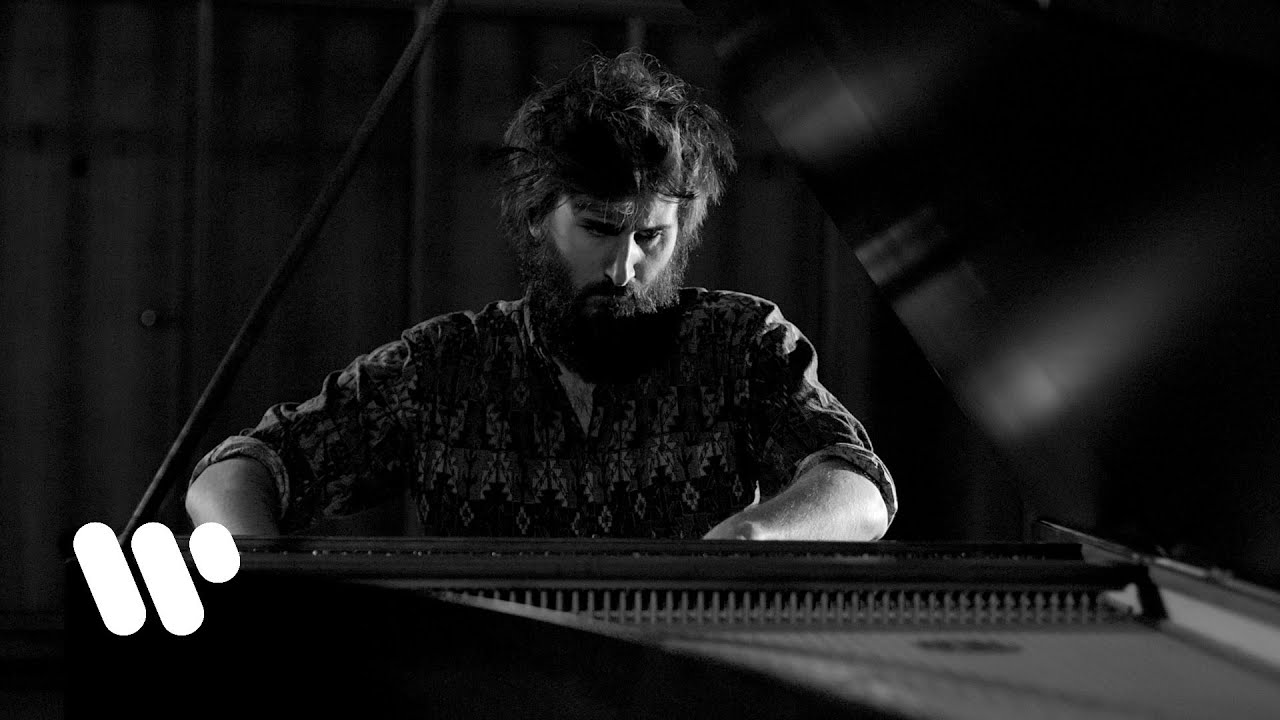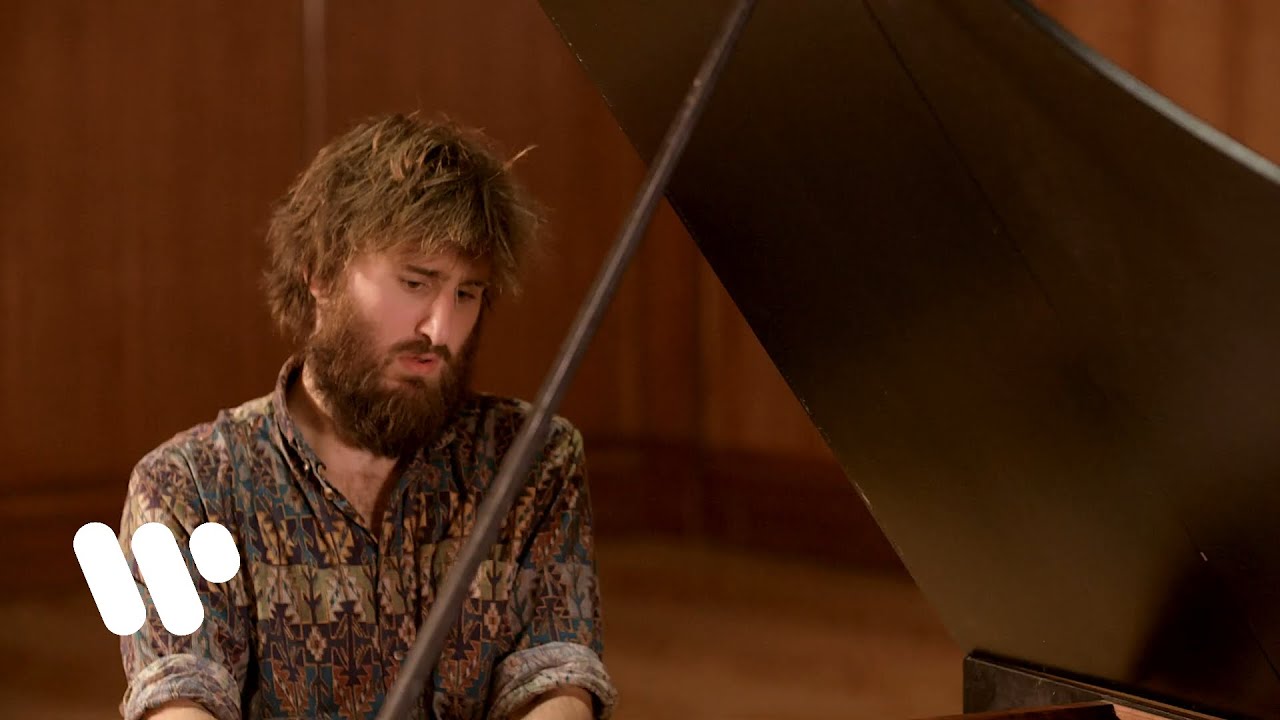Alas, I can’t find anywhere any recent recording of Mozart’s Operas where the recitativos are accompanied by a harpsichord instead of a fortepiano. Fortunately, on othe contrary, there is a piece usually played on piano or fortepiano, for once played on the harpsichord by Jean Rondeau (it’s from the CD titled “Gradus ad Parnassum”: Gradus ad Parnassum | Warner Classics). An exquisite musicality and rhetoric.
Could be a way to expand harpsichord repertory, if we harpsichordists were not too shy to “invade” fortepianists repertory. After all, even the first Beethoven sonatas were intended for “clavecin ou piano forte”.
We know Mozart did not have a fortepiano of his own until the 1782 Walter. And even then, lugging the Walter around (with a pedalboard!) to concerts was a chore. So performing his music on harpsichord makes all kinds of sense.
But similarly for Haydn. Am I correct that there is no evidence that he had a fortepiano at Esterhazy? What he did have was a two manual harpsichord with louver controls. I would dearly love to hear some of his early sonatas on such an instrument. Do any of our harpsichord maker members have a hankering to give building one a try? I appreciate it would weigh a ton. Huw, you have told us of your experience here. I would love to hear more (in a different topic area of course).
Very first note: why do thinks like staying forever on that note? And the strong romantic ritardando at the end of the first section? And in the following adagio, the Piano in bar 6, AFAIK the original has the notes dotted, he plays them legato. And …
He did not read the comments (two I believe) in Mozart’s letters about the bad taste of doing rubato altering the beat (“the left hand should go on unperturbed”, if I remember well).
And “staying forever” in the Presto in the initial very-weak-beat initial d#‘’'?
This said, I admire Jean Rondeau … for his consistency! He never deludes me: I systematically find in his performances good examples of romantic expression, of how the harpsichord should NOT be played if we wish to convey the playing style of the composers.
What are louver controls?
Maybe. At least I hope we could agree on his outstanding musicality that makes about everything he plays credible. That fantasia is an example of how he can produce a convincing piece of music while still making all those “errors” we would find unacceptable if made by whoever other harpsichordist. Admitted they are “errors”, which I am not sure at all they are.
However my point was not to debate on Jean Rondeau who doesn’t need my endorsement. My point was to say there is a lot of good, very good and great music which we harpsichordists don’t play because we feel it’s only fortepianists repertory, while it would be perfectly acceptable played on a harpsichord, history-wise and music-wise. I think it’s a loss both for harpsichordists and for the music itself which could show some hidden sides when played on harpsichord.
They are Venetian blind type shades that sit on top of the sound board and strings and whose position could be controlled by the player., thus effecting a gradation in volume.
Like those to be found on certain English harpsichords?
Keith is referring to the Venetian swell. Haydn had a Shudi at Esterhazy (now alas lost) which might well have had a Venetian swell as it was Shudi’s patent. It was a device fitted above the soundboard and “sound-tight” all round (there was also a sound-tight baffle over the wrest plank) which had a series of usually 10 louvres which could be opened by a pedal mechanism operated by the right foot with an effect rather like an organ swell which was quite a new device at the time. Some Shudis and Kirckmans survive with their swells intact and working but the effect is often disappointing as they are often not “sound-tight” due to case distortion or loss of the wrest-plank baffle. I have made 2. They are not especially difficult to make but there is a lot of work including black-smithing. (And it adds a lot of weight to an already heavy harpsichord.) When new the effect is very striking and can be modulated a little with careful foot control. Unfortunately with the swell closed the sound can be very quiet and so it is not really suitable for a modern large concert hall. In a small space, playing chamber music, it would be excellent. The swell was NOT a response to the piano which had not yet made its way to London when the swell first appeared. Rather it was an expressive device considered desirable at a time when the English makers were constantly looking for new ways to give their harpsichords more variation and, most importantly, were making them in sufficiently large numbers to be able to justify innovation and experimentation.
Sorry not to change the topic - I couldn’t see how to do that!
Le 15/02/2024 19:59, Domenico Statuto via The Jackrail écrit :
My point was to say there is a lot of good, very good and great music
which we harpsichordists don’t play because we feel it’s only
fortepianists repertory, while it would be perfectly acceptable played
on a harpsichord, history-wise and music-wise.
A lot of us probably don’t have the five-octave instrument you need to
play most of this music.
But unlike, say, the double bass or the alto flute, I dont think the harpsichord is actually short of uncontested repertoire. If we were all to learn (not just play through) the repertoire that Pieter Jan Belder has recorded, we should be kept pretty busy, not to mention all the Frescobaldi, Froberger, etc…
David
Yes of course, still some Mozart or Haydn or CPE Bach would be a welcome addition to concert’s programs.
Yes of course, but many have 5-octaves harpsichords at home, and then there are concerts…
I’ve always thought that Beethoven recommending his earlier sonatas for performance on the harpsichord was simply a marketing ploy by the music publisher. “We’ll sell even more copies of this music if we say it’s for harpsichord as wall as that new-fangled clavier!”
Indeed, Boris. I also believe that. Only very old persons (and opera continuists) would play the harpsichord at that time in Vienna …
[quote=“domenico.statuto, post:6, topic:1691, full:true”]
Indeed Domenico. Years ago I heard the excellent complete Haydn Sonatas by Shornsheim, on period instruments. In many cases (say 50%?) we know, by date or title or other details, that they were definitively conceived for the harpsichord or the fortepiano. In the many others, there is the doubt. Virtually all of them she recorded on the fortepiano, while my own feeling is that quite a few are harpsichord music.
I have played in recital, on my double Hubbard, three of the best known keyboard sonatas by Haydn, all of which are recorded on the fortepiano by Schnorsheim:
-
Hob XVI:44 in g minor, composed c. 1772. No dynamics in the score. For the date and my taste reading the score, I find it harpsichord music.
-
Hob XVI:20 in c minor, composed 1771. Harpsichord music, although in this case years later the composer added dynamic marks and therefore it makes sense also in the fortepiano.
-
Hob XVI:36 in c# minor, composed c.1770 and, although with excellent effect on the harpsichord, from the score it is apparent that it was conceived for the fortepiano.
Excellent clarification Huw! I played for years on the Shudi with venetian swells in the Fenton House London. One of the best instruments there and always kept in perfect playing condition. The issue was that indeed, to make it audible with the swell closed, it was voiced a bit too loud. The instrument was so efficient in acoustics and action, that the action did not feel heavy at all, but the sound was a little bit “forced”, or so I felt it.
[quote=“Pickett, post:11, topic:1691, full:true”]
Very good point David. I recommend students to actually avoid the late repertoire, because it requires a different technique, different use of registration: the student should first concentrate in mastering the renaissance and baroque repertoire, which is (for us modern) more difficult and also much, much larger in scope.
Unlike the music of JS Bach, which I have never been able to play convincingly on any kind of piano, I have never been tempted to try the early Viennese solo classics on the harpsichord – I just dont hear it with that timbre. On the other hand, I definitely prefer the incisive sound of the harpsichord in secco recitative as late as Mozart ( in Se vuol ballare for instance it sounds just right to me).
David
I’d say even much later than Mozart, at least until all Rossini.

